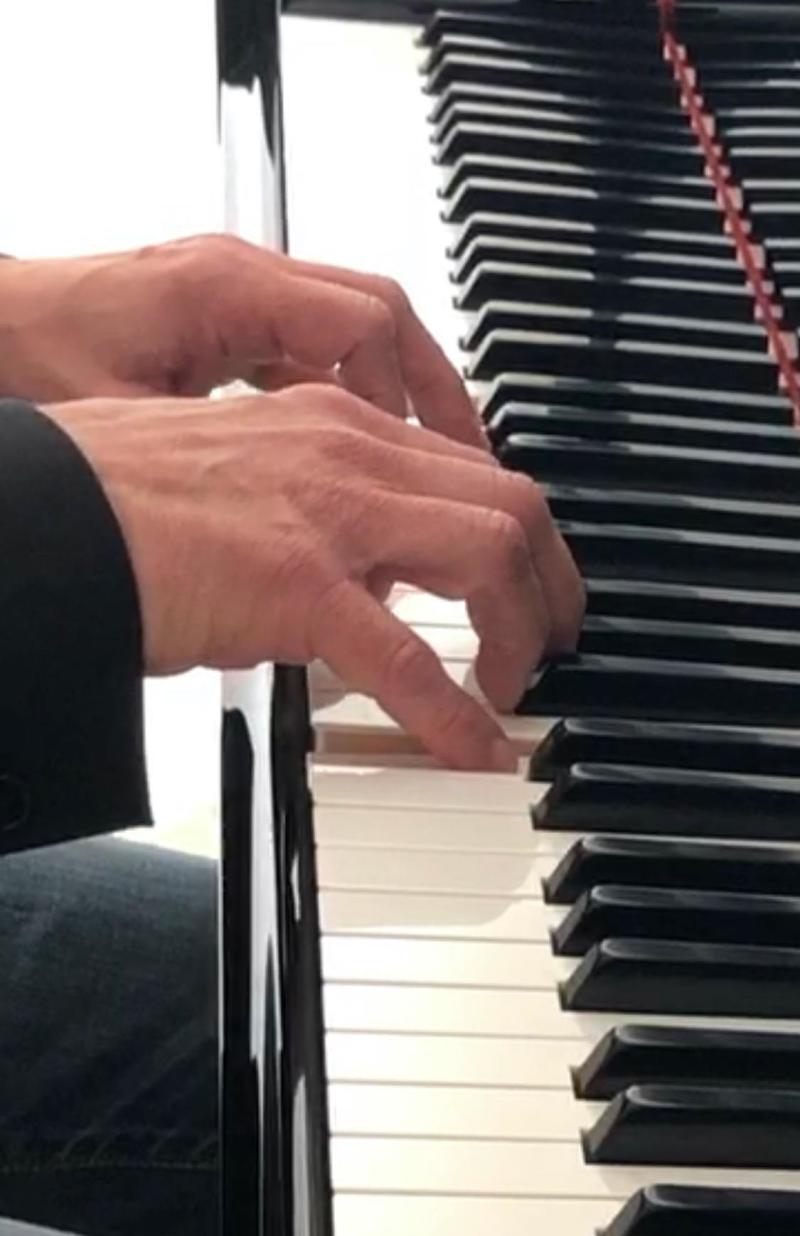
Music influences the taste of wine
Whether we like a wine also depends on the music that is playing in the background. This is the result of a study conducted by Adrian North of Heriot-Watt University in Edinburgh, Scotland. The effect of background music on the taste of wine has been described in this paper.
It has been found, and that is very interesting for an economist, that playing classical music led customers buying more expensive wine compared to when listening to top 40 music.
Both, wine and music, are miraculously described by the same adjectives. Based on Adrian C. North' results I am doing some research on how a wine can be interpreted by music and how music influences the taste of wine. For this research I focus on the musical key the songs are written. Each musical key such as C flat to F minor has certain characteristics and I am comparing this with the characteristics of the specific wine. As a result I started composing solo piano pieces in a certain key to match the characteristic of a specific wine resp. its grape.

Here is an example: Xau - which is composed in the key of F minor is an approach to describe the wine Chardonnay, the most planted wine grape on earth. My hypothesis is that Chardonnay pairs with music written in the key of F minor such as the solo piano piece Xau.
The dignified and yet fresh Chardonnay requires a careful, lively and at the same time bright solo piano composition. The key of F minor provides the majestic framework for this. F minor is rather a melancholy key. But it is also seen by some classical composers as the most passionate key of all.
Sit down, lean back and enjoy the taste of Chardonnay while listening to Xau.

Combining wine and music enhances the tasting and listening experience
Wine lovers who enjoy music know that established terms of the descriptive language of wine also apply to music. Adjectives such as light, elegant, fiery, noble, harmonious, powerful, lively, light, pithy, racy, deep, powerful and delicate describe both wine and musical compositions. The mere sound of these words, which are supposed to describe the characteristics of wine, evokes musical associations.
Thus it is easy to understand that there is a mystical connection between wine and music. Sometimes it seems as described tones in a magical way the wine. Or even the smell and taste experience of the wine makes the music understandable, or moves it into another sensual dimension.

Music and wine belong together
The study conducted by the Department of Psychology at Heriot Watt University in Edinburgh provides evidence: wine drinkers perceive the taste of red wine more strongly with "powerful and heavy music". White wine, on the other hand, tastes much better with "lively and refreshing" melodies.
